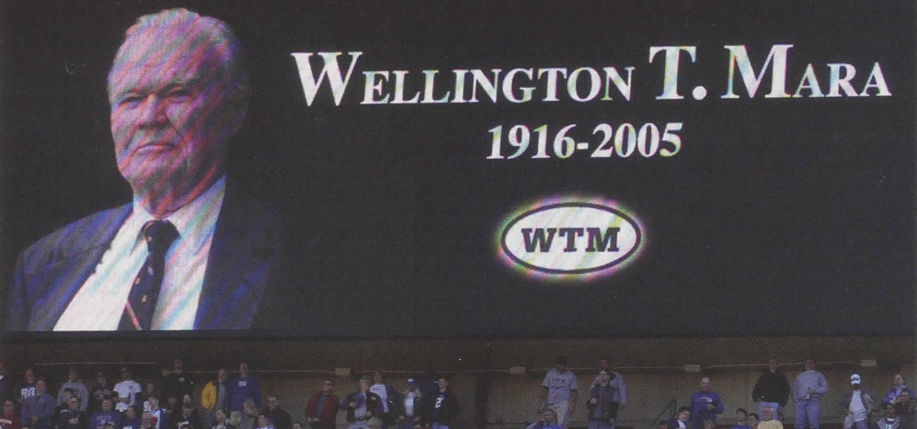On October 23, the New York Giants won its fourth game of the season, a 24-23 nail-biter over the Denver Broncos. After the game, head coach Tom Coughlin had his team in a circle, hands up high in victory and led a chant. “Duke! Duke! Duke! Duke!”
“Duke” is the affectionate nickname given to longtime owner Wellington Mara, who had been the face behind the Giants organization for its entire history. Three days later, Mara died after fighting cancer for several months. He was 89.
Mara is survived by four sons, seven daughters, 40 grandchildren, and his wife, Ann, who will retain 50 percent of the team ownership that Wellington left behind
Wellington Mara was much more than an owner, he was the very essence of the Giants organization. On October 18, 1925, at the age of nine, Mara began working for the organization as a ballboy after his father, Timothy J. Mara, purchased the team. For the next 80 years, aside from three years in the Navy during World War II, Mara was involved in the organization in one way or another.
During his tenure, Mara provided football for America’s largest market, while adjusting to the changing pace of professional athletics. The Giants earned 26 post-season appearances during his lifetime, coming a close second to the Dallas Cowboys and Rams (who played in Los Angeles and now St. Louis). Both teams have made 27 appearances.
Aside from his contributions to the Giants’ success, Mara was an influential part of the television revenue sharing, which took place in the 60s. During that time, he and his brother Jack agreed to distribute money made in their huge market to other teams in smaller markets. With this, such teams as the Green Bay Packers were kept up to speed with the larger markets, in a league that was slowly forming an identity in the minds of American sports fans.
Wellington was born in Manhattan on August 14, 1916 and never lost his connection to the city, maintaining his vintage New York accent throughout his life. During his early years he was susceptible to sickness and often came home from football games with some minor ailment. To remedy this, his father had the team stand on the sunny side of the sidelines, to keep his son out of the cold. The Giants maintain this practice to this day.
During the Great Depression, his father ceded part of the team’s ownership to Wellington and his brother Jack. He was advised to sell the team after years of financial hardship, but Wellington and his brother pleaded to their father to maintain ownership and keep football alive in New York. Tim agreed and stuck it out, only to see his team win a championship in 1938.
Wellington graduated from Fordham University in 1937 and helped with the team’s scouting by reading out-of-town newspapers. During the following years his relationship with the team grew and by 1979 he was the final voice in all football decisions within the organization.
In 1997 Mara was inducted into the Pro Football Hall of Fame in Canton, Ohio. His induction placed him alongside his father, which was the first time a father and son shared the same prestigious honor. ♦


Leave a Reply